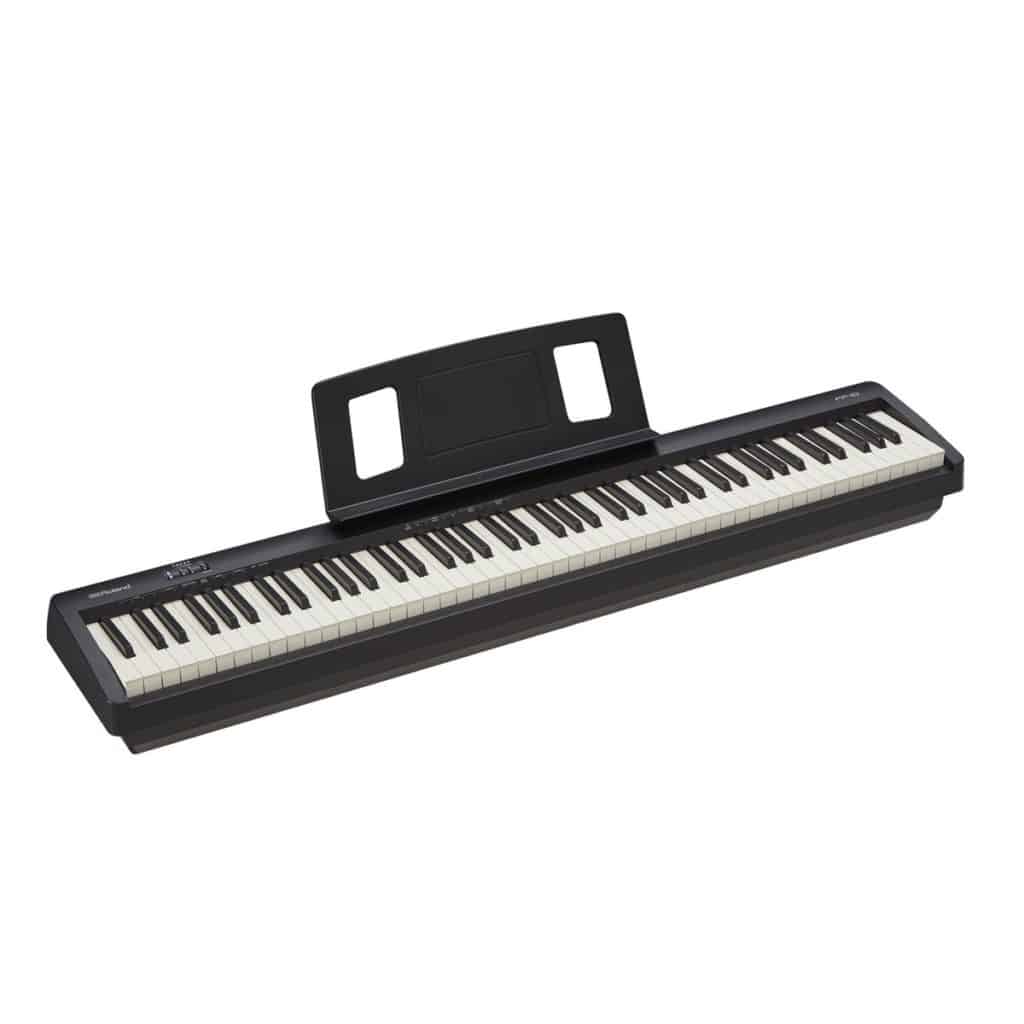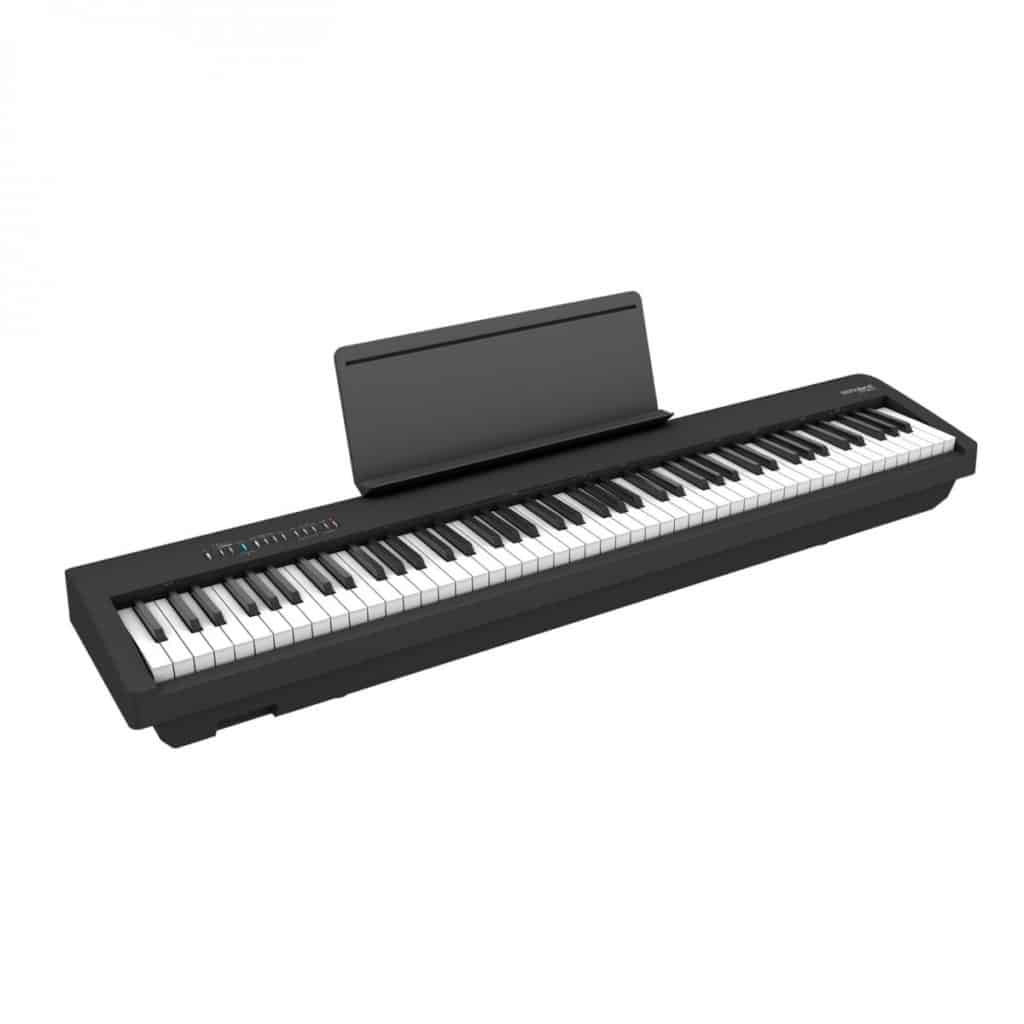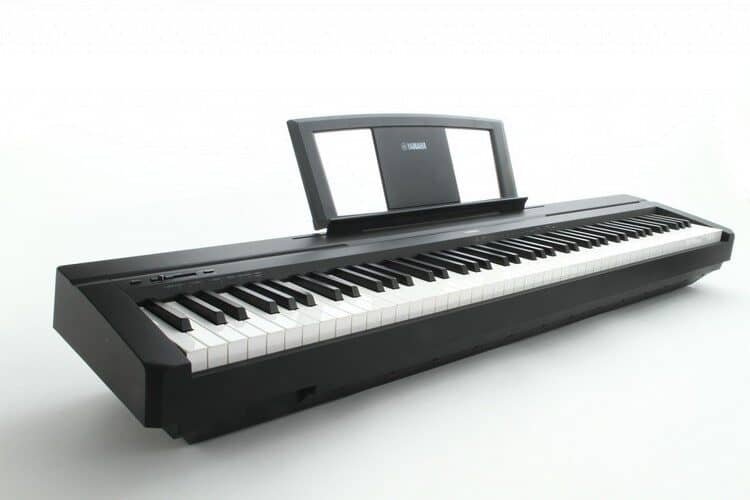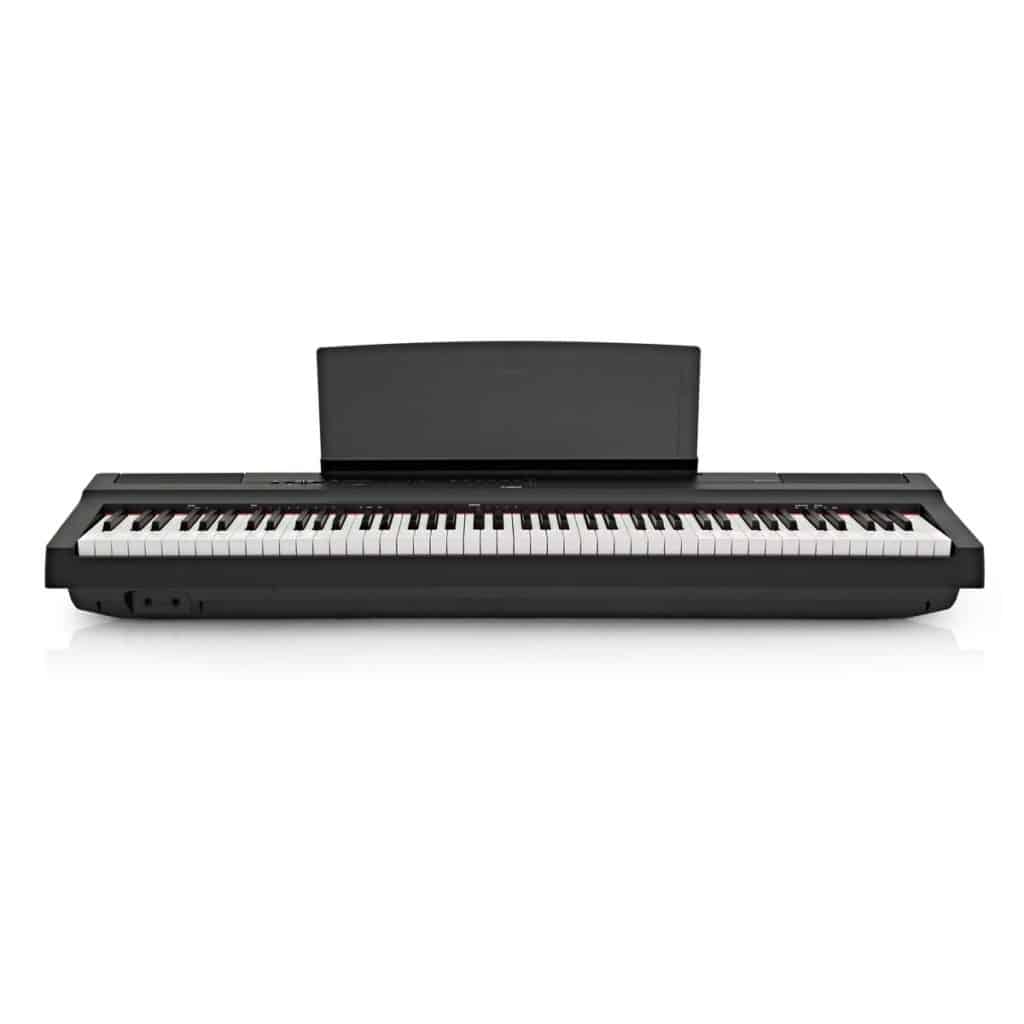The Best Beginner Keyboards/Digital Pianos 2021
My Top Recommendations For Beginners/Intermediate Players
This is likely the most important purchase you will make to get the most out of your piano practice, so it’s important to make the right choice for you. There’s a lot on the market but here’s my best suggestions for the average beginner. These are the most affordable options that retain quality and have the most important feature you need, weighted keys. I whole heartedly recommend these products and have used them all. Scroll down for more info on key features to look for when buying a keyboard/digital piano.
My Top Pick
This is my absolute favourite entry level digital piano and very popular too. It’s fantastic and a few of my students use this model. It has all the main features a beginner needs but it’s simplistic and stripped back to the basics to keep it as affordable as it can be. The piano sound is the best I have come across at this price point (Of course, that’s a bit subjective) and the fully weighted keys (which you need) feel great to play. By that I mean the ‘action’ of the keys, how they feel to push down but also, they have a really nice matte finish too! Roland is a leading manufacturer of quality musical instruments.
Roland FP-10

In the UK and Europe the Roland Fp-10 is available from Gear4Music which is a great online retailer I have purchased lots of music and audio related equipment from over the years.
In the US, the Fp-10 is currently very hard to get hold of anywhere unfortunately. After speaking with a helpful member of ZZ sounds, I was told it was related to covid and manufacturing issues but should but making a return soon hopefully. You can perhaps check out the Fp-30 (the next model up) or the Yamaha P45
The next model up in the FP range is the Fp-30x (recently upgraded from the Fp-30) and this is very similar with a couple of extra features. The main useful perk being that has dedicated buttons to change sounds. With the FP-10, you have to hold a shift button and then change sounds by pushing specific notes (they are labelled). It also has more powerful speakers too and a wider range of sounds.
Roland FP-30x

In the US You can purchase the Roland Fp-30x price at ZZ sounds
In the UK and Europe You can purchase the Roland Fp-30x at Gear4Music I have used this online retailer for many years for music and audio gear.
A Slightly More Affordable, Great Option
This is another very popular entry level digital piano and again, it’s the basic model in the range but has all the important features. It’s one some of my students use too so I have played on these loads. For me, the Roland has the edge slightly with the sound quality and the feel of the keys but I think this is another fantastic option that has everything you need and perfect for beginner/intermediate players. Yamaha is also a quality brand when it comes to musical instruments.
Yamaha P-45

In the US You can find the Yamaha P-45 available from ZZ sounds
In the UK and Europe You can find the Yamaha P-45 available from Gear4music
The next model up in the range is the P-125 and this is very similar with a couple of extra features. The main one useful perk being that has dedicated buttons to change sounds. With the P-45, like the FP-10, you have to hold a shift button and then change sounds by pushing specific notes (they are labelled)
Yamaha P-125

In the US You can find the Yamaha P-125 at ZZ sounds
In the UK and Europe You can find the Yamaha P–125 at Gear4music
Just be careful buying bundles that come with a stand and stool or headphones etc. The extras are normally not the best. In particular the stools they come with are often cheap, too small and non-adjustable. Sitting height is really important so it’s ideal to get an adjustable stool.
The terms keyboard vs digital piano – A digital piano is specifically designed to emulate an acoustic piano, digitally, so it really needs to have weighted keys to be called this. Most of us end up just referring to them as keyboard as well though sometimes. A keyboard is basically anything electric but I wouldn’t call an instrument without weighted keys or something like a synth, a digital piano though.
Features To Look For
Here’s the 2 most important features you need:
Fully Weighted Keys
These are designed to mimic a real acoustic piano and optimal for developing good technique so your fingers get used to the touch required to play and control the sound properly.
Unweighted or semi-weighted keys are of course much better than nothing if that’s all you have available to you at the moment, but they are certainly not ideal for ‘regular’ styles of piano playing. Entry level weighted keys are a bit more expensive than entry level non/semi weighted keys but it’s worth considering that longer term, you will likely need to upgrade anyway which may end up costing more overall.
Full Size – 88 Keys
Whilst slightly smaller 73/76 key keyboards would be fine for a while if you’re just starting out, soon enough you will be limited and need to upgrade anyway. Any smaller than that and you will start to run out of notes very soon!
Most people are really just looking to learn to ‘play piano’ and need something that is going to work in their favour. These are the features that you should spend the money on. Unless you have these main features, then avoid spending your money on other extras you may come across such as keyboards with screens and fancy controls or hundreds of sounds and backing tracks.
Other Features To Consider:
- On board Speakers – most entry/mid level options have these and it’s easier like this for you to just turn on and play. Higher end keyboards often don’t and are designed to be played with an outboard speaker/amp for live performance.
- Sounds – For most, the main feature is the piano sound. Decent sound quality does help you enjoy the sound of what you’re doing and play better. My entry level picks have quality piano sounds though of course, higher end models are more professional. If you want authentic electric piano sounds, organs and clavs etc as well as piano whilst keeping the weighted keys though, then you have to go higher end.
- Midi – If you’re looking to program midi or play through your computer using samplers etc, then you either need a dedicated midi keyboard or a digital piano with a midi output.
- Controls – My entry level picks have all the main requirements most people need but the interfaces are simple. If you want easier control of the settings and sounds with more buttons whilst keeping the essential features, you’ll need to spend a little more to get a model further up in the range.
